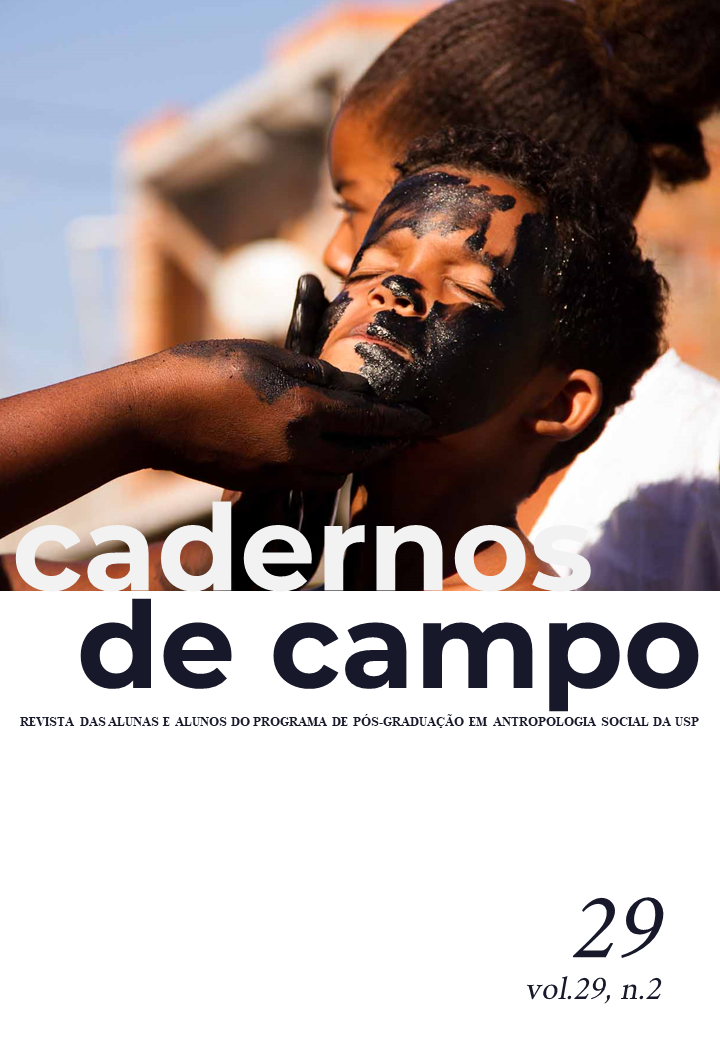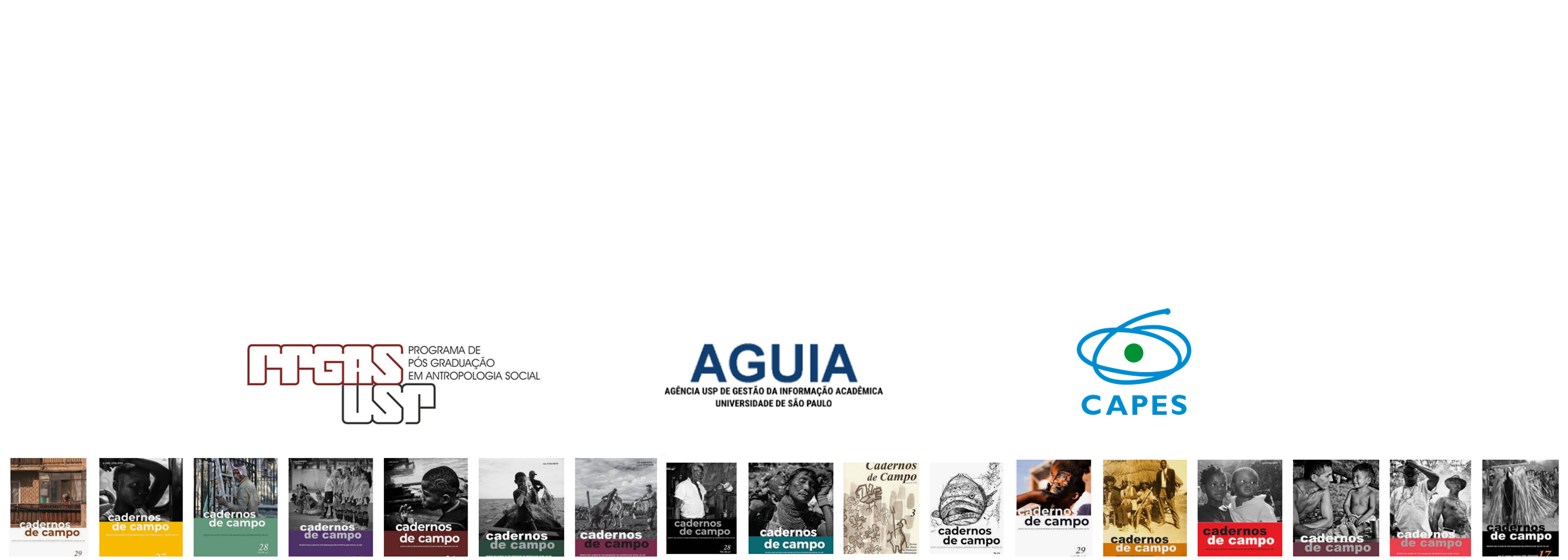Guerrilha digital e produção de contranarrativas: resistindo aos impactos dos mecanismos de dominação de memória na internet
DOI:
https://doi.org/10.11606/issn.2316-9133.v29i2pe175020Palavras-chave:
Tecnologias de Informação e Comunicação, Colapso tecnológico, Regulação algorítmica, Exclusão digitalResumo
Este texto tem como premissa compreender o papel que as Tecnologias de Informação e Comunicação (TIC's) exercem em nossa sociedade a partir das perspectivas dos conflitos existentes entre a construção de memórias e a produção de conhecimento e os impactos provenientes das experiências da falha, do colapso tecnológico, do reparo e da exclusão digital, aliados aos mecanismos de controle do capitalismo de dados, como a regulação algorítmica, no processo de marginalização de diversos grupos sociais. Serão apresentadas também as táticas de guerrilha digital empreendidas por esses grupos e indivíduos com o intuito de promoverem as suas contronarrativas.
Downloads
Referências
ALZOUMA, Gado. 2011. Young People, Computers and the Internet in Niger. Journal of African Media Studies. Vol 3, Issue 2.
APPADURAI, Arjun; ALEXANDER, Neta. 2020. Failure. Cambridge: Polity Press.
ASSANGE, Julian; APPELBAUM, Jacob; MULLER-MAGUHN, Andy; ZUMMERMAN, Jérémie. Cypherpunks: liberdade e o futuro da internet. São Paulo: Boitempo.
BAGULA, Antoine; ZENNARO, Marco; NUNGU, Amos; NKOLOMA, Mayamiko. 2013. Bridging the Digital Divide in Africa: A Technology Perspective. Wireless Communication and Information Conference.
BEARMAN, David. 2002. Electronic Record-keeping, Social Memory and Democracy. In: HAMILTON, Carolyn et al. Refiguring the Archive. London: Kluwer Academic Publishers.
BRIDLE, James. 2019. A nova idade das trevas: a tecnologia e o fim do futuro. São Paulo: Todavia.
BUSSEY, Marcus. 2017. #HackFutures: Futurist As Hacker. Journal of Futures Studies, Vol.22, nº1.
CASTELLS, Manuel. 2003. A galáxia da internet: reflexões sobre a internet, os negócios e a sociedade. Rio de Janeiro: Zahar.
CHENEY-LIPPOLD, John. 2017. We Are Data - Algorithms And The Making Of Our Digital Selves. New York: New York University Press.
DESTA, Tedla. 2018. Comments on the Digitalization and Digital Divide in the Horn of Africa (HoA), Kenya and Ethiopia: The Media Perspective. Global Media Journal, v.16, n.30, ed. 92.
FUCHS, Christian; HORAK, Eva. 2008. Africa and the digital divide. Telematics and Informatics, v. 25, n. 2.
HAMILTON, Carolyn. 2002. ‘Living by Fluidity’: Oral Histories, Material Custodies and the Politics of Archiving. In: HAMILTON, Carolyn et al. Refiguring the Archive. London: Kluwer Academic Publishers.
HAN, Byung-Chul. 2018. No enxame: perspectivas do digital. Petrópolis: Vozes.
HARRIS, Verne. 2002. The archival sliver: Power, memory, and archives in South Africa. Archival Science, v.2, n. 1-2, Kluwer Academic Publishers.
JAJI, Tsitsi Ella. 2014. Africa in Stereo: Modernism, Music, and Pan-African Solidarity. Oxford: Oxford University Press.
KIRKLEY, Christopher. 2015. Music from Cellphones - West Africa. In: MAIGRET, Nicolas; ROSZKOWSKA, Maria. The Pirate Book. Ljubljana: Aksioma – Institute for Contemporary Art.
KRAEMER, Kenneth L.; DEDRICK, Jason; SHARMA, Prakul. 2009. One Laptop Per Child: Vision vs. Reality. Communications of the ACM, v. 52, n. 6, jun.
KRZYWDZINSKI, Martin; GERBER, Christine; EVERS, Maren. 2018. The Social Consequences of the Digital Revolution. Le grandi questioni sociali del nostro tempo: a partire da Luciano Gallino. Società e trasformazioni sociali, 6, Veneza.
LARKIN, Brian. 2005. Nigerian Video: the Infrastructure of Piracy. Politique africaine, 4, n. 100, Editions Karthala.
LOVELUCK, Benjamin. 2018. Redes, Liberdades e Controle: uma genealogia política da internet: Petrópolis: Vozes.
MBEMBE, Achille. 2002. The Power of the Archive and its Limits. In: HAMILTON, Carolyn et al. Refiguring the Archive. London: Kluwer Academic Publishers.
MNJAMA, Nathan. 2014. The records management paradigm shift: problems and prospects in East and Southern Africa. In: BWALYA, Kelvin Joseph; MNJAMA, Nathan Mwakoshi; SEBINA, Peter Mazebe II Mothataesi. In: Concepts and Advances in Information Knowledge Management: Studies from Developing and Emerging Economies. Amsterdam: Chandos Publishing.
MOLINARI, Aleph. 2019. Bridging the Digital Divide (Vídeo). San Miguel de Allende: TEDx Talk, 2011. 10min. Disponível em: encurtador.com.br/fqLPZ. Acesso em: 22 jul.
MOROZOV, Evgeny. 2018. Big Tech: a ascensão dos dados e a morte da política. São Paulo: Ubu Editora.
NANNYONGA-TAMUSUZA, Sylvia; WEINTRAUB, Andrew N. 2012. The Audible Future: Reimagining the Role of Sound Archives and Sound Repatriation in Uganda. Ethnomusicology, v. 56, n. 2.
NOBLE, Safiya Umoja. 2018. Algorithms of Oppression. How Search Engines Reinforce Racism. New York: New York University Press.
SARKAR, Avijit; PICK, James B. 2015. The Global Digital Divides: Explaining Change. New York: Springer.
SCHMIDT, Eric James. 2018. Rhythms of Value: Tuareg Music and Capitalist Reckonings in Niger. Dissertation for the degree Doctor of Philosophyin Ethnomusicology. Los Angeles: University of California.
SCHWARTZ, Joan M.; COOK, Terry. 2002. Records, and Power: The Making of Modern Memory. Archival Science, v.2, n. 1-2, Kluwer Academic Publishers.
SPYER, Juliano. 2017. Social Media in Emergent Brazil: How the Internet Affects Social Change. London: UCL Press.
SRINUAN, Chalita; BOHLIN, Erik. 2011. Understanding the digital divide: a literature survey and ways forward. 22nd European Regional Conference of the International Telecommunications Society (ITS2011), Budapest.
SUMPTER, David. 2019. Dominados pelos números: do Facebook e Google às fake news, os algoritmos que controlam nossas vidas. Rio de Janeiro: Bertrand Brasil.
THRAM, Diane. 2012. Performing the archive: The ILAM For Future Generations exhibit, Music Heritage Project SA and Red Location Music History Project. In: MONTANO, Ed; NARDI, Carlo (Eds.). Situating popular musics: IASPM 16th International Conference Proceedings. Granhamstwon: IASPM.
TSOU, Judy; VALLIER, John. 2016. Ether Today, Gone Tomorrow: 21st Century Sound Recording. Notes, v. 72, n. 3, mar.
VAIDHYANATHAN, Siva. 2011. A googlelização de tudo: (e por que devemos nos preocupar): a ameaça do controle total da informação por meio da maior e mais bem-sucedida empresa do mundo virtual. São Paulo: Cultrix.
WITT, Stephen. 2015. Como a música ficou grátis: o fim de uma indústria, a virada do século e o paciente zero da pirataria. Rio de Janeiro: Intrínseca.
YA'U, Yunusa Zakari. 2004. The new imperialism & Africa in the global electronic village. Review of African Political Economy, Vol.31, 99.
ZUBOFF, Shoshana. 2018. Big Other: capitalismo de vigilância e perspectivas para uma civilização de informação. In: BRUNO, Fernanda et al (org.). Tecnopolíticas da vigilância: perspectivas da margem. São Paulo: Boitempo.
ZUBOFF, Shoshana. 2019. The age of surveillance capitalism: the fight for a human future at the new frontier of power. New York: PublicAffairs.
Downloads
Publicado
Edição
Seção
Licença
Copyright (c) 2020 Cadernos de Campo (São Paulo - 1991)

Este trabalho está licenciado sob uma licença Creative Commons Attribution-NonCommercial-ShareAlike 4.0 International License.
Autorizo a Cadernos de Campo - Revista dos Alunos de Pós-Graduação em Antropologia Social da Universidade de São Paulo (PPGAS-USP) a publicar o trabalho (Artigo, Ensaio, Resenha,Tradução, Entrevista, Arte ou Informe) de minha autoria/responsabilidade assim como me responsabilizo pelo uso das imagens, caso seja aceito para a publicação.
Eu concordo a presente declaração como expressão absoluta da verdade, também me responsabilizo integralmente, em meu nome e de eventuais co-autores, pelo material apresentado.
Atesto o ineditismo do trabalho enviado.
Como Citar
Dados de financiamento
-
Conselho Nacional de Desenvolvimento Científico e Tecnológico
Números do Financiamento 001





 eISSN: 2316-9133
eISSN: 2316-9133